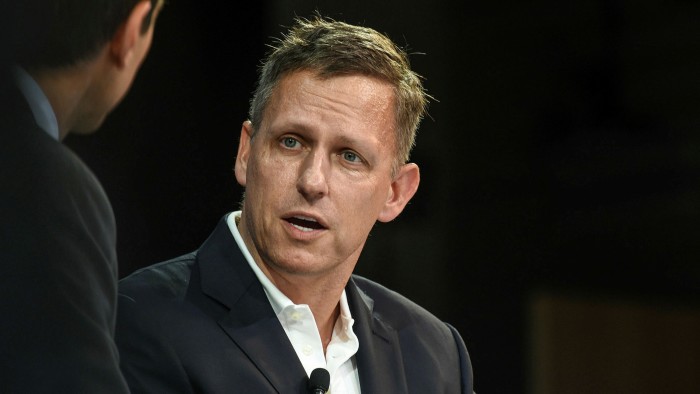US billionaires’ tax-saving ploys are giving others ideas, as politicians take note


Roula Khalaf, Editor of the FT, selects her favourite stories in this weekly newsletter.
When a non-profit news organisation obtained the tax filings of thousands of America’s wealthiest individuals a few months ago, it set off a firestorm. ProPublica’s reports demonstrated how it is that billionaires often pay little or nothing in the way of federal taxes, even in years when their wealth balloons.
Some of those named in the reports reacted with fury at the leak and threatened legal action. Others scoffed at ProPublica’s framing, noting that the US taxes income rather than wealth, and if the country wanted it otherwise, Democrat senator Elizabeth Warren would be president. Many of them loudly professed their support for higher taxes on the rich, even as they insisted they were following the letter of the tax code.
I suspect some of the billionaires named had another reaction in private: I think they were rather proud of themselves. The leaked filings demonstrate the huge advantages that can accrue from mastering the byzantine US tax laws and making use of a few savvy tax strategies. For a titan of business or investing, being in ProPublica’s spotlight is just more confirmation of their financial acumen — or, at least, that of their advisers. By the same token, it wouldn’t surprise me if a few financial advisers were fired after ProPublica’s report came out, when their clients discovered they had left money on the table.
The journalists involved wrote that they were motivated to stoke “the public debate about the future of our tax system”, and they have. Their reporting has already stirred activity in Congress. But the exposé has also provided a how-to guide for the aspirationally wealthy across the US.
Which entrepreneurs and angel investors won’t now consider putting start-up shares in a Roth IRA? This is the individual retirement account designed for the American middle class, which a young Peter Thiel used to buy founder shares in PayPal, the start-up he created in 1998, for fractions of a penny. Savers contribute post-tax income to a Roth IRA and all the investment gains within it, and withdrawals during retirement, go untaxed. Few will hit the jackpot like Thiel, whose Roth IRA, now fully diversified, was valued at $5bn at the end of 2019, according to ProPublica. But for anyone who can hold their income below the Roth IRA eligibility threshold in a given tax year, the vehicle could provide fertile soil to plant a few acorns.
Holding one’s income down is, of course, the name of the game when it comes to minimising tax bills. Financial planning 101 involves tax loss selling at the year-end to crystallise capital gains losses that can be used to offset profits elsewhere, and finding deductible expenses to reduce taxable income. The example of ProPublica’s billionaires should encourage everyone to think bigger (or, when it comes to income, smaller).
Why take an income at all? If you can live off your wealth not by cashing it in but by using it as collateral for a loan, why wouldn’t you live off the loan and let the underlying investments appreciate? You might even be able to do this all the way through life, and the taxman might never realise a capital gain, since — thanks to the generous US inheritance tax rules — the capital gains basis resets to market value when your heirs inherit.
This “buy, borrow, die” strategy appears to be gaining in popularity. Morgan Stanley’s wealth management clients have $68.1bn worth of securities-based and other non-mortgage loans outstanding, more than double the amount they had five years ago, and Bank of America has $62.4bn in securities-based loans, the Wall Street Journal reported last month.
ProPublica’s cut-out-and-keep guide to tax minimisation is handy not just for America’s rich and their advisers but also for politicians as they hunt for ways to pay for massive new spending programmes. Warren and her fellow senator Sheldon Whitehouse seized on the reports to demand Congressional hearings. Wealth management bosses may well be hauled over the coals. Powerful committee chairs have promised legislation. Polls show the US public supports paying for infrastructure improvements by increasing taxes on the wealthy.
Time might therefore be running out for some of these tax-planning strategies. Rich Americans with good advisers will use them while they can.
Stephen is reading . . .
The latest in the “Watashi no Rirekisho” (“My Personal History”) series of mini-autobiographies that has been a fixture in the Nikkei newspaper since 1956: an epic 30-parter on Boonsithi Chokwatana, chair of Thailand’s Saha Group — the country’s “King of Consumer Goods”
Follow Stephen on Twitter
This article is part of FT Wealth, a section providing in-depth coverage of philanthropy, entrepreneurs, family offices, as well as alternative and impact investment
Comments